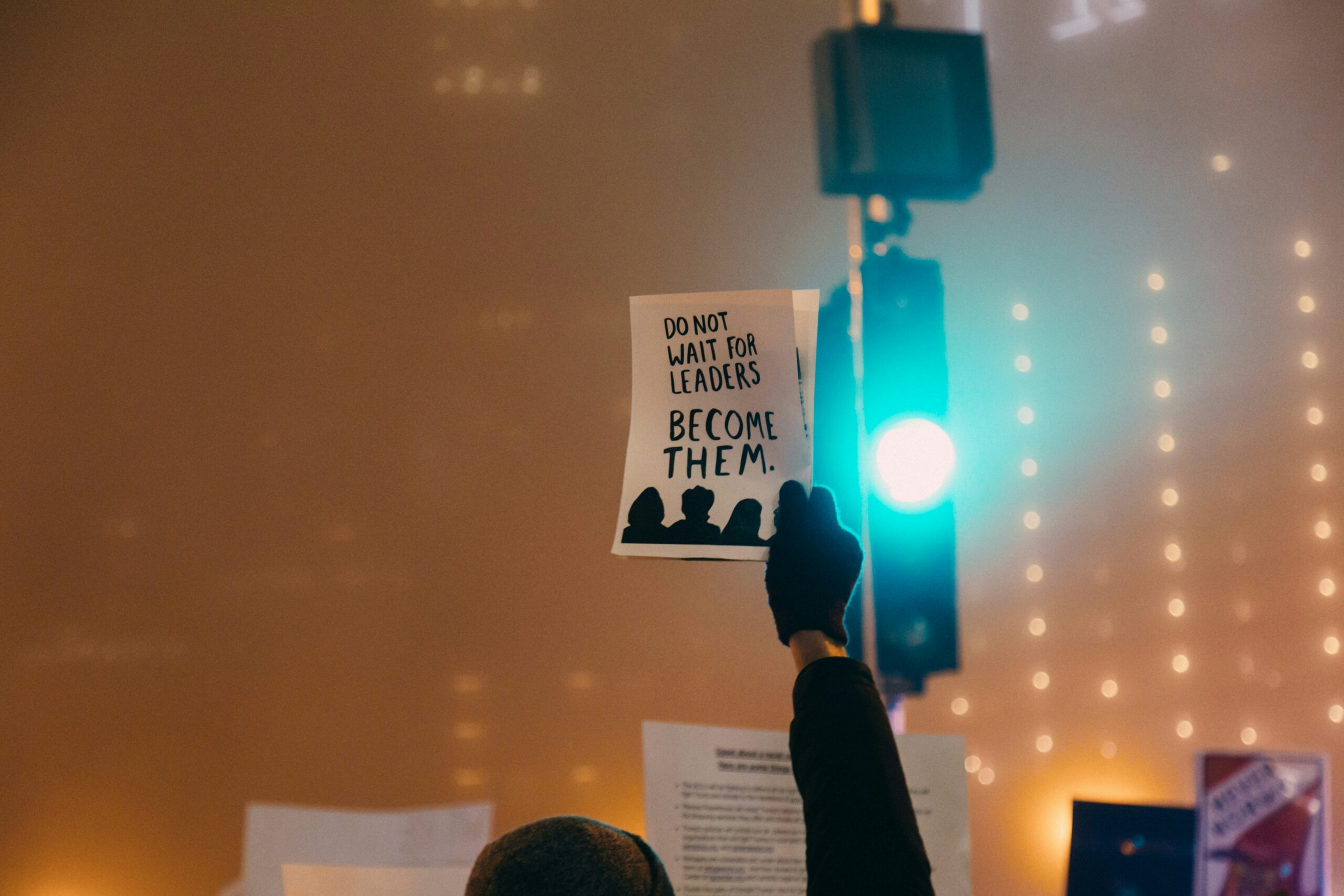The pandemic exposed the fragility of social contracts. To thrive in the future, businesses must play a role in rebuilding these contracts.
- Our social contracts have been on an unsustainable trajectory for years, thanks to rising income inequality and challenges such as climate change.
- COVID-19 has exacerbated inequality, further straining social contracts — but also boosting the motivation to strengthen them.
- Company leaders will be called on to help repair social contracts and address societal challenges.
Across much of the world, social contracts have been under growing pressure for years. The primary reason for this is inequality. Economic growth — fueled by forces such as globalization and technology — has lifted more than a billion people out of poverty since 1990. But while this process decreased income inequality across and between nations, it had the opposite effect within many societies, where economic inequality has escalated, driving social unrest, and the recent surge of populist and nationalist movements.
Social contracts were therefore on an unsustainable trajectory, as we outlined in our 2018 Megatrends report, even before COVID-19. AI’s potential to disrupt work on a massive scale promised to take economic inequality to a whole new level, bringing social contracts to a breaking point in the absence of corrective measures. Increasingly urgent collective action challenges such as climate change were similarly putting social contracts on an untenable path.
Chapter 1
The impact of COVID-19
COVID-19 has disproportionately affected vulnerable segments of society, bolstering awareness of inequities.
The pandemic has accelerated these forces and heightened their impacts — as it has with so many other trends. COVID-19 has exacerbated economic inequality, with its adverse impacts borne disproportionately by the economically disadvantaged. The large-scale labor disruption that many had expected from the march of automation suddenly loomed large in the near term thanks to the economic disruption unleashed by the pandemic. But these developments have also increased awareness and urgency to act, and the pandemic is drawing attention to different models for developing more resilient social contracts.
Increasing inequality
Research by Oxfam estimates that COVID-19 could push half a billion people below the poverty line, setting the global fight against poverty back by more than a decade. Meanwhile, as stock prices and other asset values have continued to soar, the well-heeled have gained. Within the first few months of the crisis, US billionaires had added an estimated half-trillion dollars to their combined wealth.
A key reason for growing inequality is that COVID-19 has disproportionately affected the most vulnerable segments of society, because of key weaknesses in social contracts:
Health care inequities
As societies moved to tackle the pandemic, inequities in health care infrastructure and quality resulted in higher disease incidence and death rates among disadvantaged groups such as racial and ethnic minorities. Because of these underlying inequities, minorities are also often more likely to have preexisting chronic conditions, making them more susceptible to COVID-19. And, since these groups also have less access to health insurance coverage, they pay a greater economic cost when they are struck by the disease.
Inadequate worker protections
The working conditions of blue collar “essential” workers — from grocery store clerks to public transit employees and workers in meatpacking plants — have increased their exposure and susceptibility in this crisis.
Economic vulnerability
Underlying inequities have left the working poor with little-to-no economic cushion for weathering such a deep crisis. Low wage workers typically have insufficient savings to afford unpaid time off. Sizeable population segments — from participants in gig economy platforms to informal sector workers in developing countries — lack both the ability to work remotely and safety net protections such as unemployment insurance.
Cramped living conditions
The living conditions of the poor have made them particularly vulnerable in this crisis, thanks to cramped quarters that make social distancing and home quarantines challenging, as well as relatively poor sanitation. Consequently, pandemic outbreaks have disproportionately affected such locations, from the living quarters of migrant workers in Singapore to slums in developing countries and poorer neighborhoods in American cities.
Momentum for change
The crisis has also boosted awareness of inequities and created widespread support for closing gaps and putting social contracts on a more sustainable footing, for several reasons.
First, as the pandemic gained widespread coverage in the news media, so too did the disproportionate toll it exacted on vulnerable populations. In an environment of heightened risk and uncertainty — and with the lives of loved ones potentially hanging in the balance — people tuned in to the news at a heightened rate and were more willing than before to venture outside their “filter bubbles” to find accurate information. As a result, people are more aware of economic inequities in the wake of the pandemic than they were before it hit.
Second, the pandemic brought home the reason why resilient social contracts are vital for social stability: living in a society means we are all connected. This truth becomes inescapable in a pandemic. Low wage workers who don’t have paid leave and can’t afford unpaid time away from work may be more likely to show up in the workplace even when they aren’t feeling well — endangering all of us. Individuals who don’t have access to health care may be less likely to get tested or seek treatment — endangering all of us. People living in cramped living quarters are hard pressed to practice social distancing — endangering all of us.
The pandemic gained widespread coverage in the news media, so too did the disproportionate toll it exacted on vulnerable populations. It brought home the reason why resilient social contracts are vital for social stability: living in a society means we are all connected.
As the pandemic struck, governments around the world implemented quick fixes to patch the most vulnerable parts of their social contracts. Policy measures were passed with broad support across ideological lines — noteworthy at a time of diminishing social trust and growing political polarization. Many countries instituted free or subsidized COVID-19 testing programs. The OECD reports that about half its member states expanded or initiated paid sick leave policies for workers with the virus.
As large swathes of their populations were furloughed or laid off, governments expanded support for the newly unemployed, from increased unemployment insurance in the US to subsidized payrolls in many European nations. Faced with a spike in cases resulting from cramped living quarters of migrant workers, Singapore built low-density dormitories. Botswana initiated a broad program encompassing food distribution, wage subsidies for businesses and price freezes on essential items. Numerous other African states initiated support programs, from food distribution to cash transfers and utility bill freezes. The World Bank estimates that 126 countries introduced or adapted social protection and labor market policies in response to the crisis.
These measures were often temporary or stopgap solutions rather than fundamental reforms. Providing free COVID-19 testing is not the same as expanding health care access. But the crisis is also creating momentum for broader reforms to put social contracts on a sustainable footing. Radical income support initiatives, including universal basic income, are getting fresh scrutiny. Stakeholder capitalism — the movement to make companies responsible not just to investor, but also to other stakeholders — is becoming real as the fight against COVID-19 is bringing more pressure from consumers and citizens, pushing companies to take more responsibility for societal challenges.
These pressures are also leading to increased social unrest. It is no accident that the Black Lives Matter movement and fight for racial justice have gained worldwide and sustained support at this point in time. Expect more ahead.
Chapter 2
What will the next social contracts look like?
Each society will need to develop solutions that work for its situation and reflect its values.
How will COVID-19 reshape social contracts? There’s likely to be more than one answer to this question. Each society will develop solutions that work for its situation and reflect its values and preferences. That said, here are some characteristics that more resilient post-pandemic social contracts are likely to share:
Equitable
COVID-19 has increased inequality — as well awareness and resolve to remake social contracts in more equitable ways.
Collective
Social contracts have long reflected different approaches to the trade-off between individual freedom and the collective interest. The pandemic is likely to shift this in the direction of the collective, with societies that acted in the shared interest faring better than those that emphasized individual liberty. With growing pressure on companies to act in the interest of a broader set of stakeholders, social contracts are also more likely to be more inclusive than before, empowering individuals and not just organizations.
Long-term
COVID-19 has demonstrated the importance of focusing on long-term risks — not just pandemics, but also climate change and chronic disease. The next social contracts will bring more focus to long-term challenges and long-term value.
Data-centric
The crisis has also demonstrated the success of data-driven approaches, with societies and governments that based their responses on data faring better. If applied more broadly to public policy at large, this could be a welcome shift at a time of heightened partisanship and polarization. But the move to data also raises issues of data rights and ethics. The pandemic is bringing some of these issues to the forefront, for instance with respect to privacy in contact tracing apps. How will new social contracts be designed around a more balanced approach to data rights, responsibilities and ownership?
Business-driven
Lastly, business will be called on to play an active role in building more resilient, long-term and inclusive social contracts. These pressures had been growing even before the pandemic, and have only increased since, as the responses of businesses have come under scrutiny and many firms have stepped in to fill gaps in areas ranging from testing (providing locations) to manufacturing (e.g. ventilators, sanitizers) or requisitioning personal protective equipment for their people, customers and communities. Expect this to continue. Businesses will be answerable to a broader set of stakeholders and will play a central role in helping shape our next social contracts.
Chapter 3
Five actions for companies
The pandemic has heightened awareness of the social repercussions of individual and corporate actions.
As social contracts come under growing pressure, so too will companies. Firms are increasingly operating in an environment in which they are answerable not just to investors but also to the perceptions and expectations of employees, consumers and citizens. The pandemic has heightened awareness of the social repercussions of individual and corporate actions.
Here are five actions companies should take:
1. Reinforce worker protections
The most proximate and direct-action companies can take is with respect to their own workers. At a time when worker protections are in the spotlight and exacerbating vulnerability, shoring up protections — not just with respect to health and sanitation, but also living wage, paid time off, retirement savings and more — is critical.
Over a century ago, Henry Ford famously doubled the wage rate of his factory workers to the then unheard-of sum of five dollars a day. Facing criticism, Ford argued that this action was in the self-interest of the company. A well-paid workforce is more productive, more loyal — and more able to afford the automobiles rolling off Ford’s production lines. The same logic applies today.
- How aligned are your employee benefit programs with today’s changing needs?
- Where are your workers most economically and medically vulnerable — and how can you help close these gaps?
2. Be willing to take a stand
The recent protests in favor of the Black Lives Matter (BLM) movement and racial justice were accompanied by a remarkable level of vocal support by corporations of all kinds. Just a few years ago, companies would have been wary of coming out so strongly on one side of a political issue. The long-standing conventional wisdom has been that getting embroiled in political or social matters risks alienating a large portion of one’s customer base.
The events of recent months have demonstrated how completely that old calculus has changed. Far from being punished for taking a stand, companies now risk being penalized for not acting. For business leaders, a key take-away is that the timing (and, therefore, perceived authenticity) of your actions is critical. Entities that had dragged their heels for years on BLM before recently rushing to change their stance were greeted with skepticism and did not get any reputational boost from their actions.
Once again, such actions are in the economic self-interest of companies. Building a brand as a visionary leader on social issues will help attract and retain workers and customers. More fundamentally, companies have the opportunity to lead in building a more stable and equitable society — which is critical for sustaining the purchasing power necessary for achieving their own growth targets.
- How are you identifying emerging social issues?
- How will you act proactively to get an early mover advantage — and reputational boost?
3. Focus on long-term value
A key component of corporate action on these issues is the matter of metrics. The old adage that “what gets measured gets managed” may be something of a cliché at this point, but it’s one that’s very relevant. The ways in which we measure value creation, whether at the corporate or governmental level, incentivize narrow and short-term behaviors. Without metrics that measure the value companies create for all stakeholders (rather than just investors) and over the long term (rather than the next three months) it will be almost impossible to achieve a significant and sustained shift in corporate behavior.
Changing these metrics will require coordinated action, between companies as well as with regulators. Business leaders should be proactive and part of the conversation to shape metrics that best align societal interests with their business objectives.
- What metrics should you be using to better align yourself with measuring long-term value and the value you deliver to a broader set of stakeholders
- What steps are you taking to build such metrics?
4. Monitor and mitigate social and political risks
The months and years ahead will be marked by more action on reforming social contracts — as well as more social and political unrest. Even as companies move proactively on these issues, they should increase vigilance and monitor social and political risks across the markets in which they operate. Geopolitical risks had already been rising before the crisis, with leading economic powers growing increasingly embroiled in a techonomic cold war. The pandemic has made the landscape even more challenging.
- How are you monitoring new geopolitical risks in the social and political domain?
- How are these risks being factored into your strategy and growth plans?
5. Be transparent, consistent and collaborative
The key thread through all of this — and the challenge for companies — is fostering and maintaining trust.
Trust requires that companies speak and act with transparency and authenticity. Consumers and citizens have an acute sensitivity and low tolerance for self-serving corporate speak and public relations initiatives.
Trust requires that companies act consistently, over time and across every level of the organization. A single misstep can get quickly amplified on social media and set back your efforts by years. Culture, processes and controls matter more than ever.
Lastly, trust requires collaboration. Companies are now in the social realm because the viability of social contracts affects the viability of their strategies and growth plans. But, by definition, these are society-wide issues and no single entity can solve them alone. Collaborating with your peers, as well as with governments, consumers and citizens is critical.
- How are you reshaping your culture, practices and controls so that the entire enterprise is aligned around your societal- and purpose-driven goals?
- How are you partnering with others in the private and public sector to achieve these goals?
Summary
Social contracts, already reeling from long-term trends such as economic inequality, are under even more pressure in the wake of the pandemic. The path ahead will be marked by both greater social unrest and corrective measures to put social contracts on a more sustainable footing. For companies, this means greater scrutiny and expectations to act in the larger societal interest. The artificial separation between the business and political worlds is fast disappearing. Companies are now in the social realm, both because of stakeholder expectations and because the viability of social contracts affects the viability of their strategies and growth plans. What role will your organization play in redefining social contracts for the better?
This article was first published here.
Photo by Mark Asthoff on Unsplash.

 5.0
5.0 





















